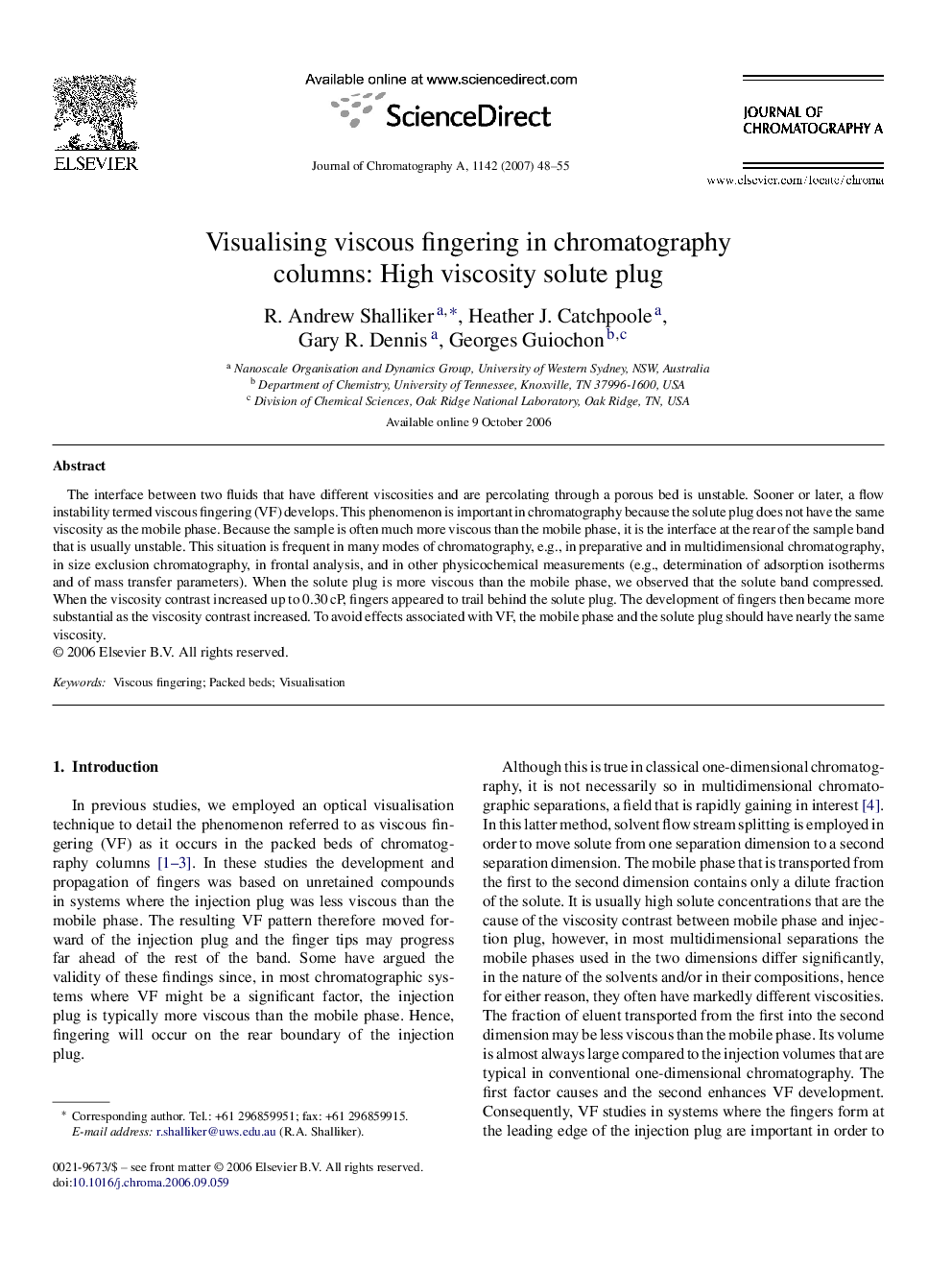| Article ID | Journal | Published Year | Pages | File Type |
|---|---|---|---|---|
| 1209269 | Journal of Chromatography A | 2007 | 8 Pages |
The interface between two fluids that have different viscosities and are percolating through a porous bed is unstable. Sooner or later, a flow instability termed viscous fingering (VF) develops. This phenomenon is important in chromatography because the solute plug does not have the same viscosity as the mobile phase. Because the sample is often much more viscous than the mobile phase, it is the interface at the rear of the sample band that is usually unstable. This situation is frequent in many modes of chromatography, e.g., in preparative and in multidimensional chromatography, in size exclusion chromatography, in frontal analysis, and in other physicochemical measurements (e.g., determination of adsorption isotherms and of mass transfer parameters). When the solute plug is more viscous than the mobile phase, we observed that the solute band compressed. When the viscosity contrast increased up to 0.30 cP, fingers appeared to trail behind the solute plug. The development of fingers then became more substantial as the viscosity contrast increased. To avoid effects associated with VF, the mobile phase and the solute plug should have nearly the same viscosity.
